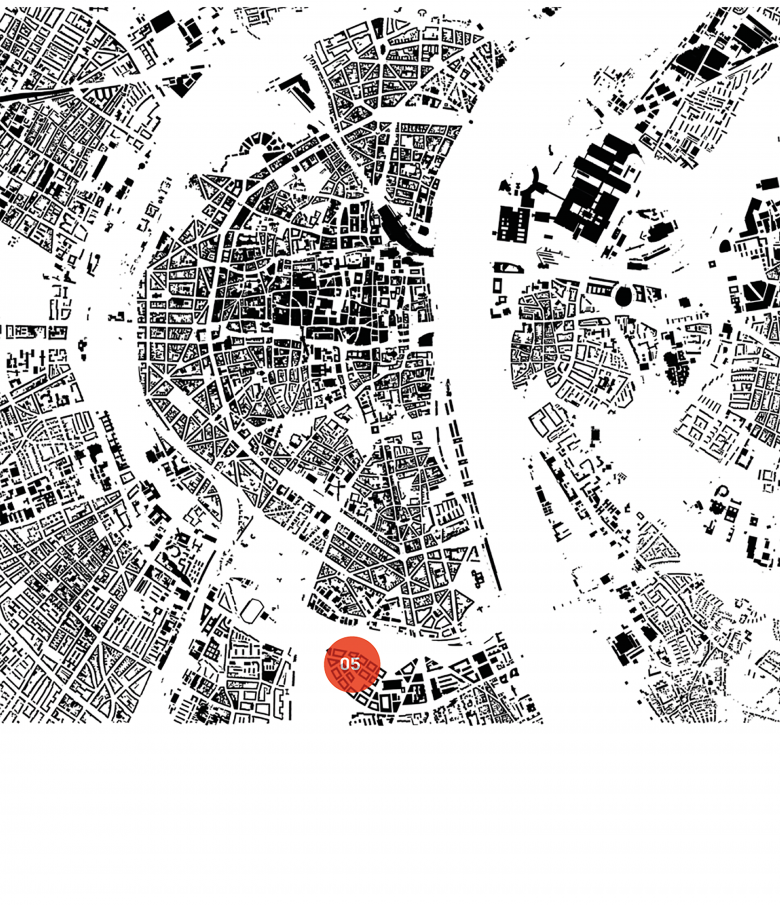The Colours of Cologne
On the southern edge of Cologne’s city centre, a new urban city district is being created on the site of the wholesale market in Parkstadt Süd. Apartments and jobs for 10,000 people will be created. This is the largest urban development project in Europe in an inner-city location. For the urban framework planning, O&O Baukunst is faced with the challenge of counteracting the increasing conformity of urban development and making living spaces lively and creating a strong sense of identity.
Location: Parkstadt Süd, Cologne Raderberg
Client: O&O Baukunst
Collaboration: Kirsten Lampert, artist
Project status: Pilot project under construction
Start of construction: Start of pilot project 09/2021
The area around the old wholesale market on the southern edge of Cologne’s city centre is to be transformed into a modern city district over the next few years, which is one of the largest inner-city urban development projects in Europe. A new development area on this scale will initially be a foreign structure in the city and does not yet have a clear identity.
In order to integrate the new district into the urban area of Cologne, together with the artist Kirsten Lampert, O&O Baukunst has developed the colour concept, the “Colours of Cologne”. Inspired by Roman oil lamps, which were made from the clay of Cologne’s soil and are still found today in excavations, four colours were identified as the distinctive colours of Cologne: a reddish fireclay, a yellowish-white kaolin, a green earth tone and a delicate grey tone created by mixing soot with chalk.
These colours serve as a preliminary colour palette in the large-scale “Parkstadt Süd” project. The buildings of the new urban quarter will be designed in the “Colours of Cologne” and connected to each other by a uniform base dipped in the colour tone “Dom Gold”. Since the “Colours of Cologne" are firmly anchored in the cultural history of the city, they fulfil the longing of the city’s inhabitants for identification and recognition of their own living environment.

